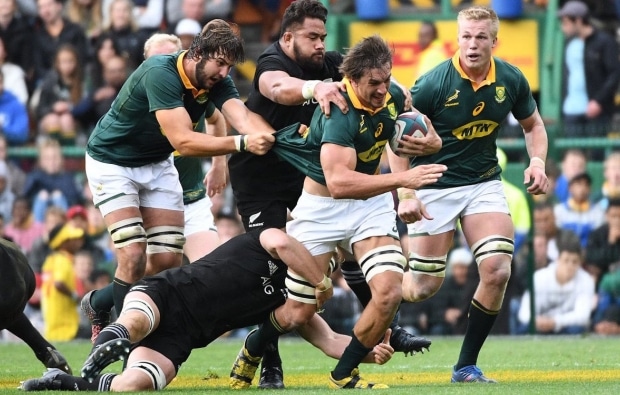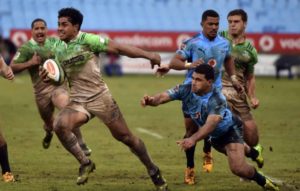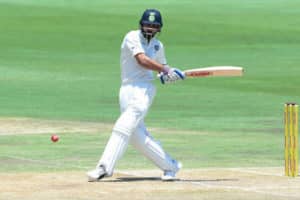The Springboks should take cognisance of Western Province’s precise and powerful playoff performance in Saturday’s Currie Cup final, writes CRAIG LEWIS.
In the Boks’ final Rugby Championship clash in Cape Town, they came within a couple of points of causing a massive upset against the All Blacks. That surprise performance was predominantly built on a belligerent ball-carrying approach from the hosts, who dominated the gainline battle.
At domestic level, the Sharks’ successful run to a home final was based around coach Robert du Preez’s belief that the team needed to stick to its traditional strengths of a powerful pack and strong kicking game.
Yet they were ultimately outplayed in the final by a Province team that opted to revert to a more ‘conservative’, but highly effective approach based on an appreciation of possession and an irrepressible scrummaging effort, while possessing the talented backs who could make the most of this front-foot ball.
After such results, do we really need more proof of just what makes our domestic and national sides most successful? Surely not.
It’s also an approach that defies any expectation that attack and try-scoring prevalence will be sacrificed at the altar of a measured game revolving around accurate kicking, strong defence, dominant forward play and gainline ascendancy.
After all, the Boks scored three superb tries at Newlands, the Sharks averaged four tries a game in the Currie Cup, while Province outscored their opponents four tries to two in the final.
At the end of the day, it’s simply about playing with purpose. By dominating the set pieces and establishing ascendancy at the gainline, Province created the sort of pressure that enabled exciting backs such as Robert du Preez, Huw Jones and Damian Willemse to terrorise the opposition.
OPINION: Province scrum powers title triumph
When Du Preez put boot to ball, it was done with purpose and an astute understanding of the game management required, while Province reaped immense reward by simply refusing to sacrifice possession throughout the second half.
WP deserve plenty of plaudits for the manner in which they went back to harnessing the strengths that make most South African sides successful. It was what the Sharks did successfully for so much of the season, while it was also the high-percentage approach the Boks embraced in Cape Town.
Focus will now shift back to the Springboks as they get set to head into action on a four-Test end-of-year tour, starting with a clash against Ireland on 11 November.
It’s now less than two years until the 2019 World Cup in Japan, and this tour represents the ideal opportunity for the Springboks to fine-tune a template of rugby that must be about both brains and brawn.
Now is the time for the Springboks to begin becoming the sort of team that is feared and revered for their ability to bully teams into submission. There’s no shame in that.
Allow Wilco Louw to unleash his scrumming prowess on northern hemisphere opponents. Let’s see the likes of Eben Etzebeth, Malcolm Marx and Pieter-Steph du Toit go into beast mode as they did against the All Blacks.
At the same time, let’s encourage flyhalves Elton Jantjies and Handré Pollard to attack the gainline with front-foot ball, but let’s also celebrate when they kick with purpose and a plan.
The Springboks have a young and still unproven backline. With this in mind, there’s every reason to continue harnessing the strengths of a pack that can compete with the best in the world, while beginning to embrace a brand of rugby that can yield success at the next World Cup.
On Saturday, Province didn’t receive overwhelming plaudits for ball-in-hand brilliance, but make no mistake, that scrumming performance and display of composed game management was just as much a thing of beauty.
Now let’s hope we can similarly celebrate a Springbok display of substance over style over the four Tests in Europe. I’d take results over running rugby any day of the week.
Photo: @Springboks/Twitter





